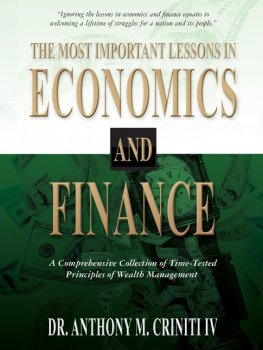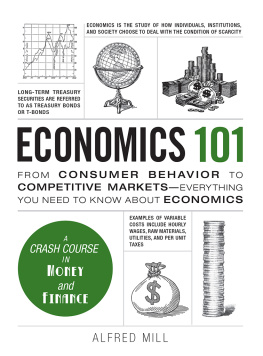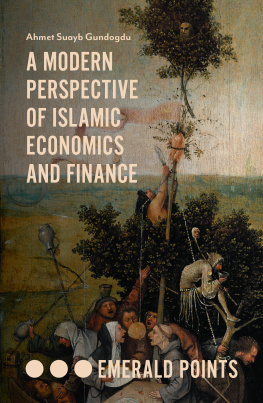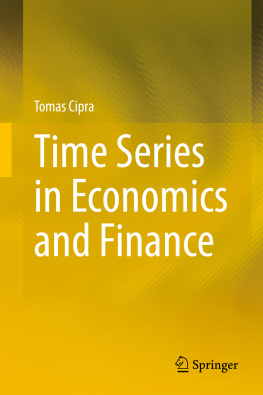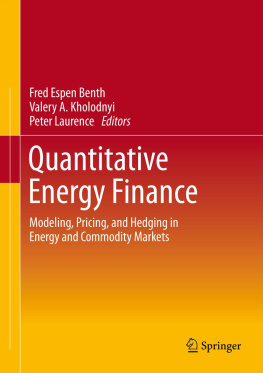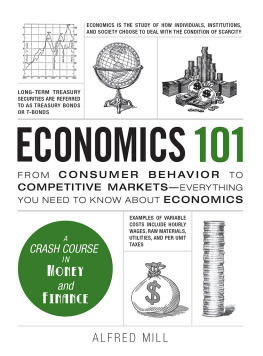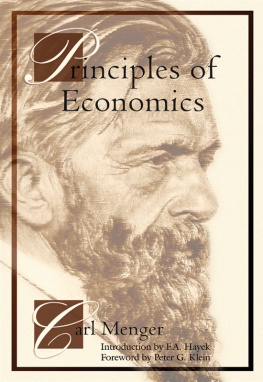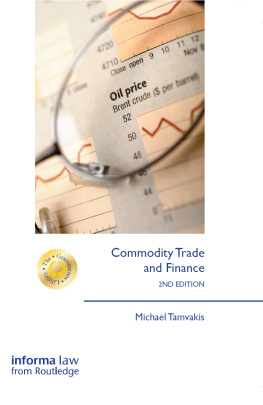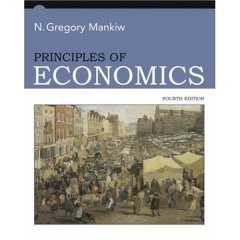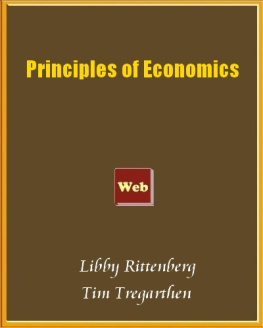Daniel P. Ahn - Principles of Commodity Economics and Finance
Here you can read online Daniel P. Ahn - Principles of Commodity Economics and Finance full text of the book (entire story) in english for free. Download pdf and epub, get meaning, cover and reviews about this ebook. year: 2018, publisher: MIT Press, genre: Politics. Description of the work, (preface) as well as reviews are available. Best literature library LitArk.com created for fans of good reading and offers a wide selection of genres:
Romance novel
Science fiction
Adventure
Detective
Science
History
Home and family
Prose
Art
Politics
Computer
Non-fiction
Religion
Business
Children
Humor
Choose a favorite category and find really read worthwhile books. Enjoy immersion in the world of imagination, feel the emotions of the characters or learn something new for yourself, make an fascinating discovery.

- Book:Principles of Commodity Economics and Finance
- Author:
- Publisher:MIT Press
- Genre:
- Year:2018
- Rating:5 / 5
- Favourites:Add to favourites
- Your mark:
- 100
- 1
- 2
- 3
- 4
- 5
Principles of Commodity Economics and Finance: summary, description and annotation
We offer to read an annotation, description, summary or preface (depends on what the author of the book "Principles of Commodity Economics and Finance" wrote himself). If you haven't found the necessary information about the book — write in the comments, we will try to find it.
Principles of Commodity Economics and Finance — read online for free the complete book (whole text) full work
Below is the text of the book, divided by pages. System saving the place of the last page read, allows you to conveniently read the book "Principles of Commodity Economics and Finance" online for free, without having to search again every time where you left off. Put a bookmark, and you can go to the page where you finished reading at any time.
Font size:
Interval:
Bookmark:
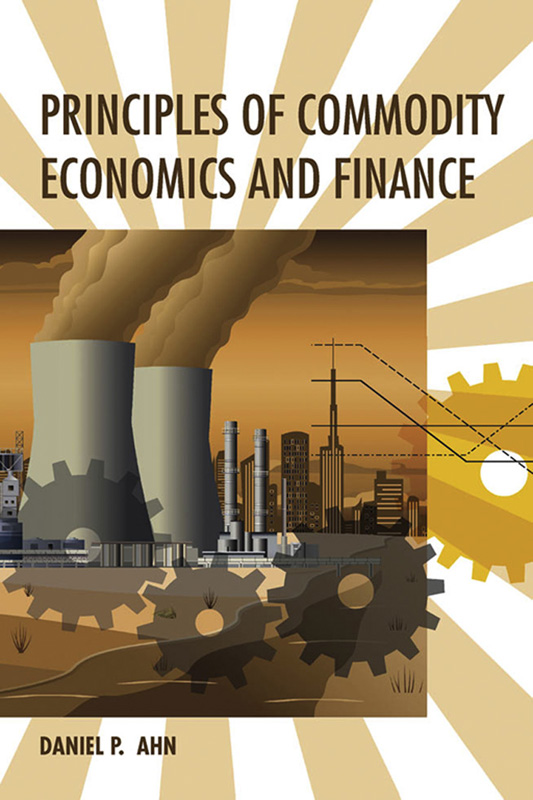
2018 Massachusetts Institute of Technology
All rights reserved. No part of this book may be reproduced in any form by any electronic or mechanical means (including photocopying, recording, or information storage and retrieval) without permission in writing from the publisher.
This book was set in Palatino LT Std by Toppan Best-set Premedia Limited. Printed and bound in the United States of America.
Library of Congress Cataloging-in-Publication Data
Names: Ahn, Daniel P., author.
Title: Principles of commodity economics and finance / Daniel P. Ahn.
Description: Cambridge : MIT Press, [2018] | Includes bibliographical
references and index.
Identifiers: LCCN 2017060988 | ISBN 9780262038379 (hardcover : alk. paper)
eISBN 9780262347877
Subjects: LCSH: Commodity exchanges. | Commodity futures. | Capital
market--Law and legislation.
Classification: LCC HG6046 .A374 2018 | DDC 332.63/28--dc23 LC record available at https://lccn.loc.gov/2017060988
ePub Version 1.0
d_r0
- Chapter 2
- Chapter 3
- Chapter 11
- Chapter 1
- Chapter 2
- Chapter 3
- Chapter 4
- Chapter 5
- Chapter 6
- Chapter 7
- Chapter 8
- Chapter 9
- Chapter 10
- Chapter 11
Preface
This book is the culmination of an intellectual journey that began more than ten years ago, when I first became interested in energy and resource markets as a young graduate student.
Back in the mid-2000s, with the guidance and encouragement of my Ph.D. advisers, Id written several research papers touching on energy and commodities, such as non-Gaussian fat-tailed distributions in commodity prices or modeling the game-theoretic reasoning behind the strategic stockpiling of petroleum.
Then, in 2006, I joined Lehman Brothers as an energy economist, and I quickly learned just how much there was still left to learn.
Commodities had become one of the hottest asset classes on Wall Street, and in the space of two years, I observed firsthand on my Bloomberg terminal the dizzying rise of oil prices toward a record intraday peak of almost $150 per barrel in July 2008, followed by their equally rapid collapse to below $30 per barrel just six months later.
Everything Id learned in schooleven core assumptions about demand and supply and rational marketswas sorely tested. Yet even as I was in the midst of reappraising everything I thought I knew, I was disappointed at how cavalierly some practitioners approached the subject. Billions of dollars were being poured into investments by individuals with a dangerous lack of understanding of fundamental principles.
Altogether, the searing experience of extreme commodity market volatility amid the global financial crisis convinced me that a rigorous treatment of the economics of commodities was neededfor practitioners, educated observers, policymakers, and academics alike. I took the opportunity to consolidate both my market experience and academic knowledge and began teaching the subject at Columbia University, and later, at Johns Hopkins University.
But while searching for an appropriate textbook, I was surprised to find that many standard treatments of the economics of natural resources remained highly theoretical, usually taking as their point of departure Hotellings classic (1931) model. In many of these texts, one would be lucky to find even a mention of financial derivatives! Treatments for practitioners, on the other hand, were often narrativistic and nonrigorous. After some years of teaching, I came to the conclusion that a textbook bridging and synthesizing the knowledge base of these two communitiesacademics and practitionerswould be quite useful.
This book is the result. That is also why I chose to title it Principles of Commodity Economics and Finance, not Principles of Resource Economics. Commodity economics and resource economics are conceptually interchangeable, but the term commodities has a flavor of financial practice, which I believe distinguishes this book from other treatments.
To repeat the clich, the great constant about commodity markets is change. Something is always happening, whether its tumbling prices for solar panels and batteries, economic restructuring in China, hydraulic fracturing driving a U.S. hydrocarbon renaissance, geopolitical disruptions emanating from the Middle East, or accelerating climate change. There is also a fantastic amount of sector-specific jargon, impossible to cover in one book, used by such disparate actors as speculators in hedge funds, traders shipping physical commodities in bulk, contractors building a power plant, or regulators designing a carbon tax regime.
This book aims to remain relevant for students and practitioners alike by covering the economic and financial principles that should underlie practice. I hope this book can become a resource as readers confront the worlds many challenges in regard to natural resources.
The book itself is organized into four semi-autonomous modules. After an introduction to basic concepts and a review of the various types of commoditiesenergy, metals, and agricultural productsthe first module delves into fundamental demand and supply concepts, and covers both the workhorse models and where they are problematic.
The next module shifts to the mechanics behind commodity financial markets and how they motivate financial activity. The third module follows closely from the second by diving deeper into the concepts underlying investment decisions around both physical and financial portfolio exposure to commodities.
The last module is a catch-all for additional special topics such as geopolitics, financial regulation, and electricity markets.
In terms of prerequisites, familiarity with the basic concepts of macroeconomics, microeconomics, financial markets, and statistics is required. Also, particularly in the first module, familiarity with differential calculus is necessary, and an understanding of the calculus of variations and stochastic calculus is a plus.
This mathematical basis may scare off some readers, but there is no need to be alarmed. Ive tried to balance equations with text boxes and graphs to provide concrete verbal and visual explanations of the intuition behind these concepts. Nevertheless, this books utility waxes for those readers who have mastered the mathematical language underpinning current state-of-the-art theory and practice.
My own intellectual journey is far from over, but the chapters of this book mark various way stations along it and I hope will also serve as a navigational guide for others. If this is your first exposure to commodities, I am delighted and honored to welcome you as a fellow traveler in one of the most exciting and challenging domains of human inquiry.
Acknowledgments
For a book that has gestated for so many years and in many ways mirrors my own intellectual development, I owe an immeasurable intellectual debt to a large number of people.
I first would like to thank my professors and teachers, who have played a formative role in my education, especially my graduate academic advisers, Martin Feldstein, Kenneth Rogoff, John Campbell, and Rustam Ibragimov, and my undergraduate advisers, Avinash Dixit, Dilip Abreu, and Michael Woodford.
Other professors I am grateful to have learned from and to have received input and guidance from include Roland Benabou, Martin Weitzman, Bo Honore, Mark Watson, Xavier Gabaix, James Stock, Bill Hogan, Graham Allison, Gilbert Metcalf, and Kenneth Medlock (whose research and notes I borrowed heavily from in reviewing certain concepts in this book).
Font size:
Interval:
Bookmark:
Similar books «Principles of Commodity Economics and Finance»
Look at similar books to Principles of Commodity Economics and Finance. We have selected literature similar in name and meaning in the hope of providing readers with more options to find new, interesting, not yet read works.
Discussion, reviews of the book Principles of Commodity Economics and Finance and just readers' own opinions. Leave your comments, write what you think about the work, its meaning or the main characters. Specify what exactly you liked and what you didn't like, and why you think so.

